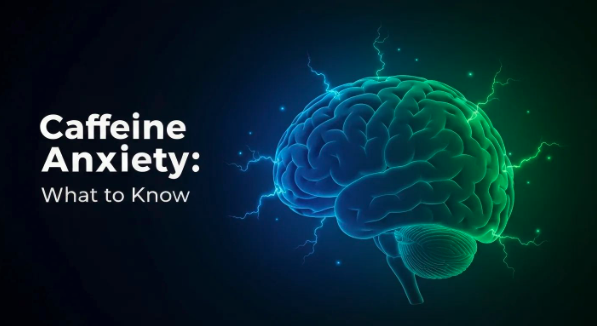Journaling for Anxiety Management Made Simple
Discover utilizing journaling as an anxiety management tool to reduce stress and enhance emotional well-being.


Journaling for Anxiety Management
Understanding Anxiety and Its Impact
Anxiety disorders represent the most common mental health issue in the United States, affecting approximately 18.1% of adults aged 18 and older Medical News Today. This condition can significantly influence an individual's daily life, hindering their ability to function effectively in personal and professional environments. Anxiety can lead to physical symptoms such as increased heart rate, sweating, and fatigue, and its prevalence speaks to the need for effective management strategies.
Individuals experiencing anxiety may benefit from various self-help techniques, such as mindfulness, breathing exercises, and journaling. These strategies can support emotional regulation and help to counteract the negative effects that chronic anxiety can impose on both mental and physical health. For a broader understanding, it is essential to explore the effectiveness of utilizing journaling as an anxiety management tool.
Benefits of Journaling for Anxiety
Journaling offers numerous advantages for managing anxiety. Researchers have found that writing about feelings and experiences can prevent anxiety, promote a calming effect, reduce mental distress, and enhance overall well-being Medical News Today. Table 1 summarizes the primary benefits associated with journaling in the context of anxiety management.
BenefitDescriptionCalming of AnxietyJournaling can provide a safe outlet for expressing thoughts and emotions, leading to increased feelings of calm.Improved Well-Being IndicatorsRegular journaling may correlate with better health indicators, making it a valuable tool for nurturing emotional health.Support for DepressionIndividuals suffering from anxiety-related depression may find relief through the expressions found in their writing.Enhanced Stress ManagementWriting helps participants process stress and develop problem-solving strategies.
Additionally, specific journaling methods such as mindful gratitude journaling have been linked to significant improvements in psychological distress and life quality, demonstrated by a 2021 study involving cancer patients Medical News Today. Similarly, expressive writing about emotional events has been shown to reinforce the immune response, indicating a broader health benefit beyond mental well-being Medical News Today.
Incorporating journaling into a daily routine can be straightforward and accessible, requiring minimal resources. This approach not only helps individuals manage their emotions but also fosters a deeper understanding of their mental health Long Island Counseling Services. For anyone grappling with anxiety, journaling can be a pivotal step toward greater emotional clarity and health.

Techniques for Effective Journaling
Utilizing journaling as an anxiety management tool can be transformed into a powerful practice when employing specific techniques. Here are three effective approaches for journaling that can aid in managing anxiety.
Emotion-Focused Journaling
Emotion-focused journaling revolves around exploring and expressing one’s feelings. By writing about thoughts and emotions, individuals can gain insight into their anxiety triggers and emotional responses. This technique helps in recognizing patterns and gaining clarity on what contributes to their anxiety.
Research indicates that journaling can lessen mental distress and improve indicators of well-being, making it a vital practice for anxiety management [1].
Benefits of Emotion-Focused JournalingIncreases self-awarenessIdentifies emotional triggersEnhances emotional processing
Mindful Gratitude Journaling
Mindful gratitude journaling involves writing down things one is thankful for, which can shift focus from anxiety to positivity. Regularly practicing gratitude has been linked to reduced psychological distress and enhanced quality of life, notably identified in a study involving individuals with advanced cancer [1].
Incorporating gratitude into daily journaling helps foster a sense of appreciation and can serve as a form of emotional resilience against stressors.
Key Features of Mindful Gratitude JournalingPromotes positive thinkingLowers anxiety levelsIncreases overall happiness
Expressive Writing
Expressive writing focuses on articulating feelings related to traumatic or emotional events. This technique not only helps in processing complex emotions but has been shown to strengthen the immune response as well [1].
By allowing oneself to freely express thoughts and emotions, individuals can gain closure on difficult experiences, which ultimately supports better mental health.
Advantages of Expressive WritingEnhances emotional processingReduces anxiety symptomsProvides a sense of relief
Incorporating these journaling techniques into a regular routine can offer individuals a straightforward way to navigate their emotions and understand their mental health better. Explore additional strategies such as grounding techniques to stay present and the role of self-care in anxiety prevention to complement your journaling practice.

Strategies for Stress Management
Addressing Stressors through Journaling
Utilizing journaling as an anxiety management tool can significantly improve stress management. Writing provides a productive outlet for expressing feelings and thoughts, especially in response to stressors. When individuals take the time to articulate their worries and triggers, it can lead to heightened awareness and better coping strategies. Research indicates that untreated stress can accumulate, adversely affecting mental, physical, and emotional health.
Journaling offers an opportunity to reflect on specific stressors, evaluate their impact, and brainstorm potential solutions. This process can help individuals detach from their immediate feelings, offering perspective and clarity. The act of writing can also reinforce positive thoughts and feelings, which is essential for building resilience against stress.
Benefits of Addressing Stressors through JournalingHeightened awareness of stress triggersImproved coping strategiesEnhanced emotional clarityPromotion of resilience
For more strategies on reducing anxiety, you can explore our article on the role of self-care in anxiety prevention.
Altering Neural Processing with Journaling
Research suggests that journaling can influence brain activity related to emotions and stress processing. Specifically, writing about past failures has been linked to altered neural processing in the brain, particularly in the mid-cingulate cortex. This area plays a crucial role in processing negative emotions and mitigating their impact. Therefore, when individuals engage in journaling, they not only document their experiences but also potentially reshape how their brains process emotional events.
Expressive writing, especially about traumatic experiences, may strengthen the immune response and improve overall health outcomes. This suggests that journaling can facilitate a healthier emotional state by promoting cognitive restructuring and healthier emotional processing.
By actively engaging in journaling, individuals can effectively alter their neural responses to anxiety and stress. This can lead to enhanced emotional regulation and reduced levels of anxiety in daily life. For additional techniques to manage anxiety, consider reading about guided imagery for anxiety reduction or breathing exercises to control anxiety.
Incorporating Journaling into Daily Routine
Journaling can be an effective strategy for managing anxiety, but it is essential to approach it mindfully, balancing self-help techniques with professional support.
Self-Help vs. Professional Intervention
Journaling serves as a beneficial self-help method for many individuals dealing with anxiety. It provides a therapeutic outlet for expressing emotions, reducing stress, and fostering self-awareness [2]. However, it is important to recognize that journaling may not replace professional intervention for everyone.
Some people might find that the combination of self-help journaling and professional guidance leads to better anxiety management. In a study involving a web-based Positive Affect Journaling (PAJ) intervention, participants who engaged in structured journaling sessions experienced decreased mental distress and increased well-being [3]. This highlights that while journaling can be effective, professional treatment should also be considered, especially for severe anxiety disorders.
Implementing Journaling Practices
To effectively incorporate journaling into a daily routine, establishing a consistent practice is vital. Here are several tips for setting up a successful journaling routine:
StepAction1Choose a Time: Designate a specific time each day for journaling, such as in the morning or before bedtime. Consistency helps build a habit.2Set a Duration: Aim for a set period, like 10-15 minutes, to focus on writing. This ensures you dedicate enough time without feeling overwhelmed.3Create a Space: Find a comfortable and quiet place for journaling. A designated space can enhance focus and promote relaxation.4Select Your Medium: Decide whether you prefer writing by hand in a notebook or using a digital format. Both options have unique benefits.5Use Prompts: Sometimes, starting from scratch can be daunting. Use journaling prompts related to anxiety management or positive focus to guide your writing.6Review Regularly: Take time to look back at previous entries. This practice can reveal patterns in thoughts and emotions, aiding in self-reflection.
For individuals interested in utilizing journaling as an anxiety management tool, it is essential to remember to incorporate other stress management techniques alongside journaling, such as practicing breathing exercises to control anxiety or exploring grounding techniques to stay present.
By integrating journaling into daily life and considering professional support when necessary, individuals can better navigate anxiety and cultivate self-awareness and empowerment.
Advanced Journaling Approaches
Utilizing journaling as an anxiety management tool involves various advanced techniques that can significantly aid in coping with anxious thoughts and feelings. Two effective approaches include challenging anxious thoughts and recalling strengths and successes.
Challenging Anxious Thoughts
Challenging anxious thoughts through journaling involves writing down fears or concerns and then generating alternative perspectives. This process allows individuals to create a new narrative or set of possibilities for themselves. The exercise helps to illustrate that their fears are often less likely to occur than anticipated or are not as severe as initially thought. This shift in perspective aids in anxiety relief [4].
Here’s how this technique can be structured:
StepAction1Write down a specific anxious thought or fear.2Identify evidence that supports or contradicts this thought.3Generate positive counterarguments or new ways to think about the situation.4Rewrite the initial thought incorporating the new insights.
By consistently applying this method, individuals can train their minds to refocus from anxiety-inducing thoughts to more balanced, rational perspectives. In doing so, they may experience a reduction in anxiety levels over time.
Recalling Strengths and Successes
Another advanced journaling approach involves reflecting on personal strengths and past successes. This practice encourages individuals to recall moments where they successfully managed challenges, which can help build confidence when facing new obstacles. The act of self-reflection promotes self-empowerment and encourages a mindset shift from doubt to confidence.
To implement this technique effectively, consider the following steps:
StepAction1Create a list of personal strengths and skills.2Write down previous successes and how they were achieved.3Reflect on how these strengths can be applied to current challenges.4Set up reminders for these strengths during moments of anxiety.
By regularly noting strengths and successes, individuals can reinforce their self-belief, making it easier to navigate difficult situations that may contribute to their anxiety.
Incorporating these advanced journaling techniques can greatly enhance the effectiveness of journaling as an anxiety management tool. Utilizing structured methods allows for deeper exploration of one’s thoughts and emotions, ultimately leading to better coping strategies. For more guidance on journaling techniques, consider exploring the role of self-care in anxiety prevention or other methods such as guided imagery for anxiety reduction.
Research on Journaling Effectiveness
Positive Affect Journaling Intervention
Research indicates that utilizing journaling as an anxiety management tool can be highly effective. A recent 12-week Web-based Positive Affect Journaling (PAJ) intervention was associated with decreased mental distress and increased overall well-being among general medical patients, particularly those experiencing elevated anxiety symptoms. Participants engaged in this intervention showed sustained moderate adherence, completing 15-minute journaling sessions on three days each week over the course of the program.
The findings revealed significant improvements in various mental health metrics, showcasing:
MeasurementChange ObservedMental Distress5% reductionAnxiety Symptoms9% reductionPTSD Symptoms6% reductionDepression Symptoms2% reduction
These outcomes suggest that the Web-based PAJ could serve as an effective intervention for mitigating mental distress and enhancing physical functioning in medical populations with moderate anxiety symptoms. Such interventions could be integrated into routine medical care to improve quality of life for individuals with chronic health conditions.
Meta-Analysis Findings
A comprehensive meta-analysis further supports the effectiveness of journaling interventions. The analysis revealed an average statistically significant reduction of 5% in mental health scores when compared to control groups. Specifically, the benefits were more pronounced in individuals reporting anxiety (9% reduction) and PTSD symptoms (6% reduction), with a smaller, yet still significant reduction in depression scores (2%) [5].
Such data highlights the potential for journaling not only to alleviate anxiety but also to enhance emotional resilience, indicating it is a viable self-help strategy for improving mental health outcomes. For those seeking additional resources on anxiety management, exploring options such as guided imagery for anxiety reduction or breathing exercises to control anxiety may offer further benefits.
References
[2]:
[3]:
[4]:
[5]:
More Resources
A team ready to start your journey.
Get in touch — today.
We are a safe space – a haven for exceptional individuals to receive discreet, personalized, in-person treatment and care.
.avif)



.webp)






